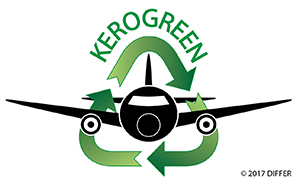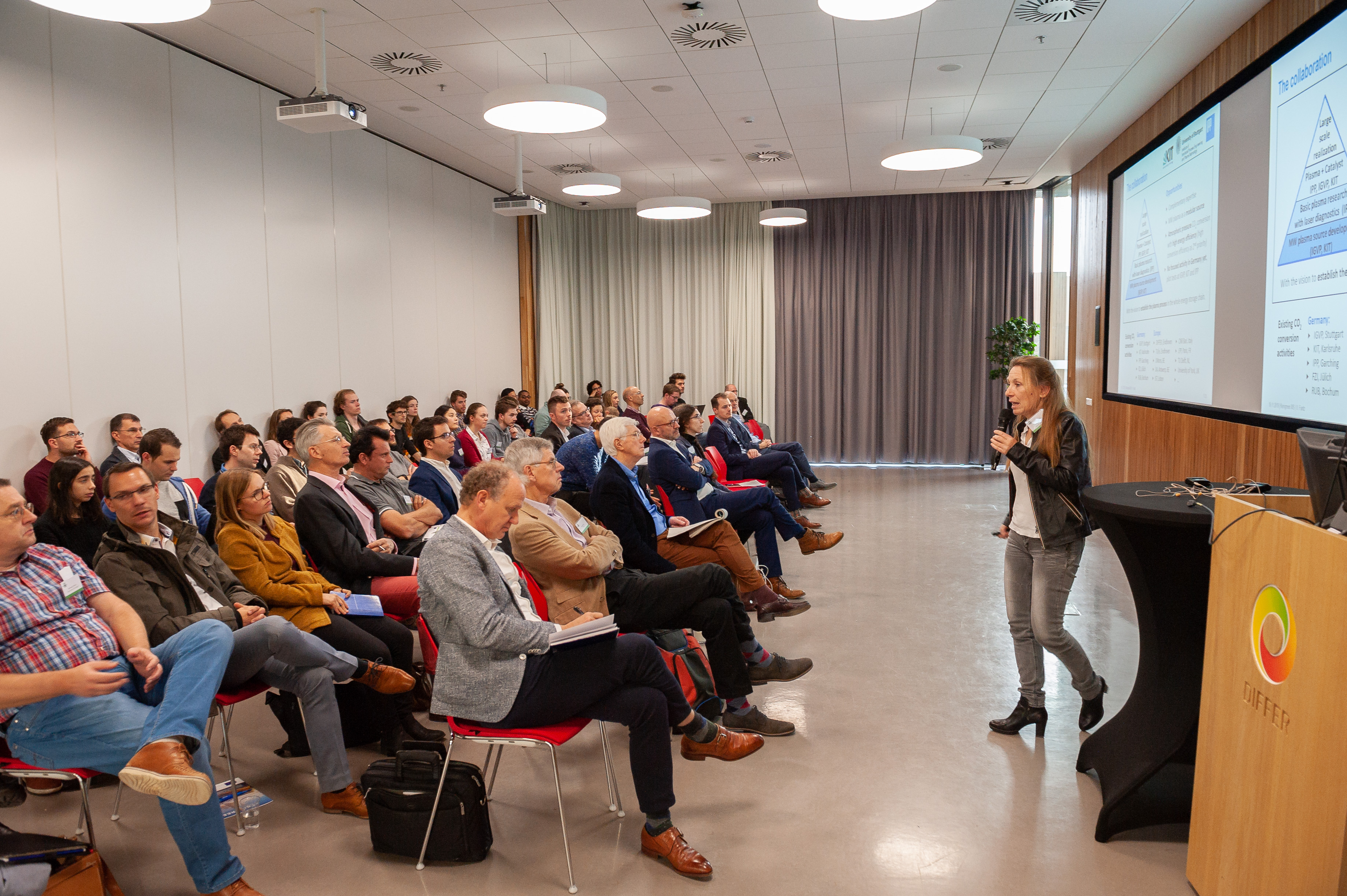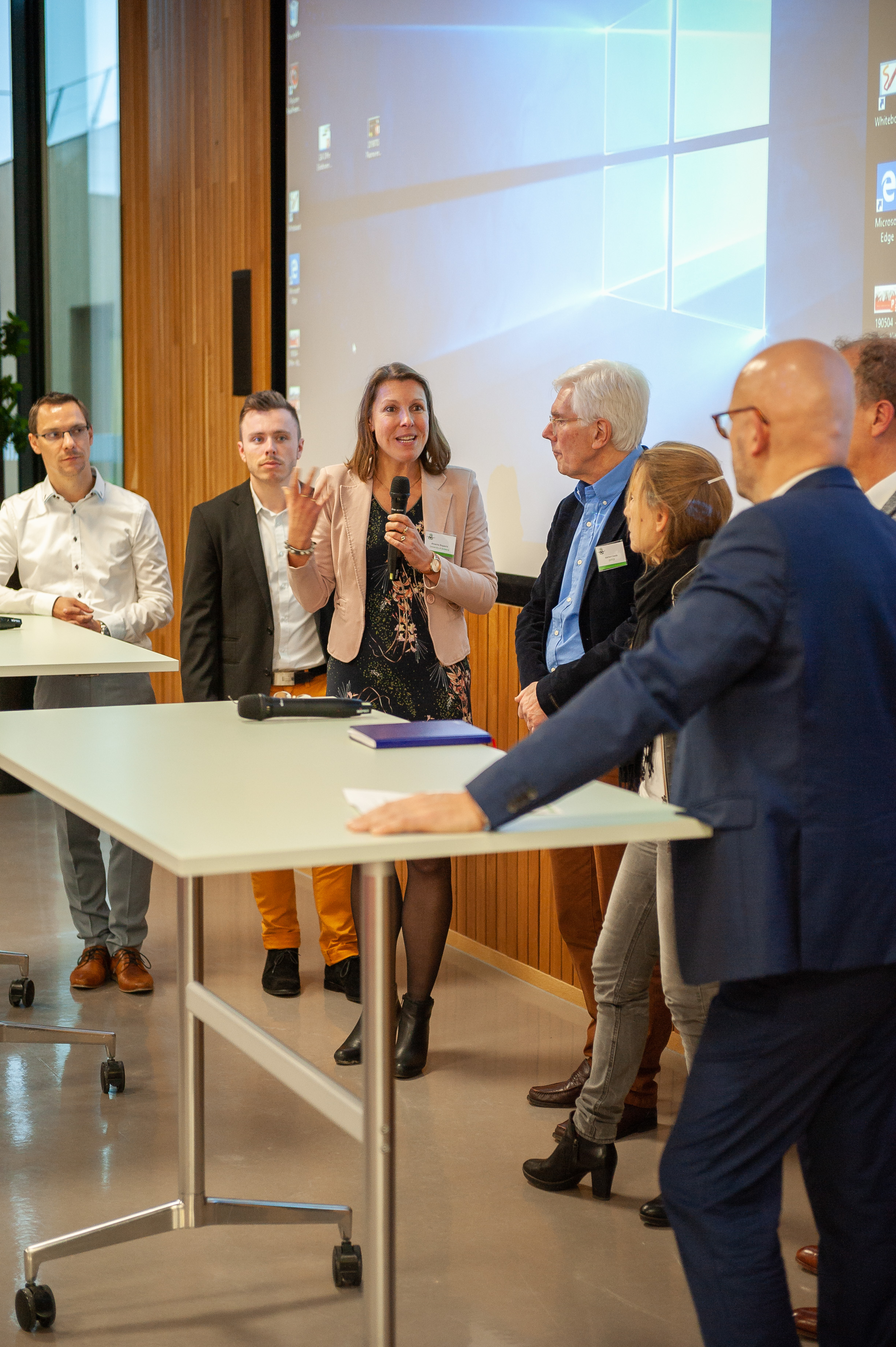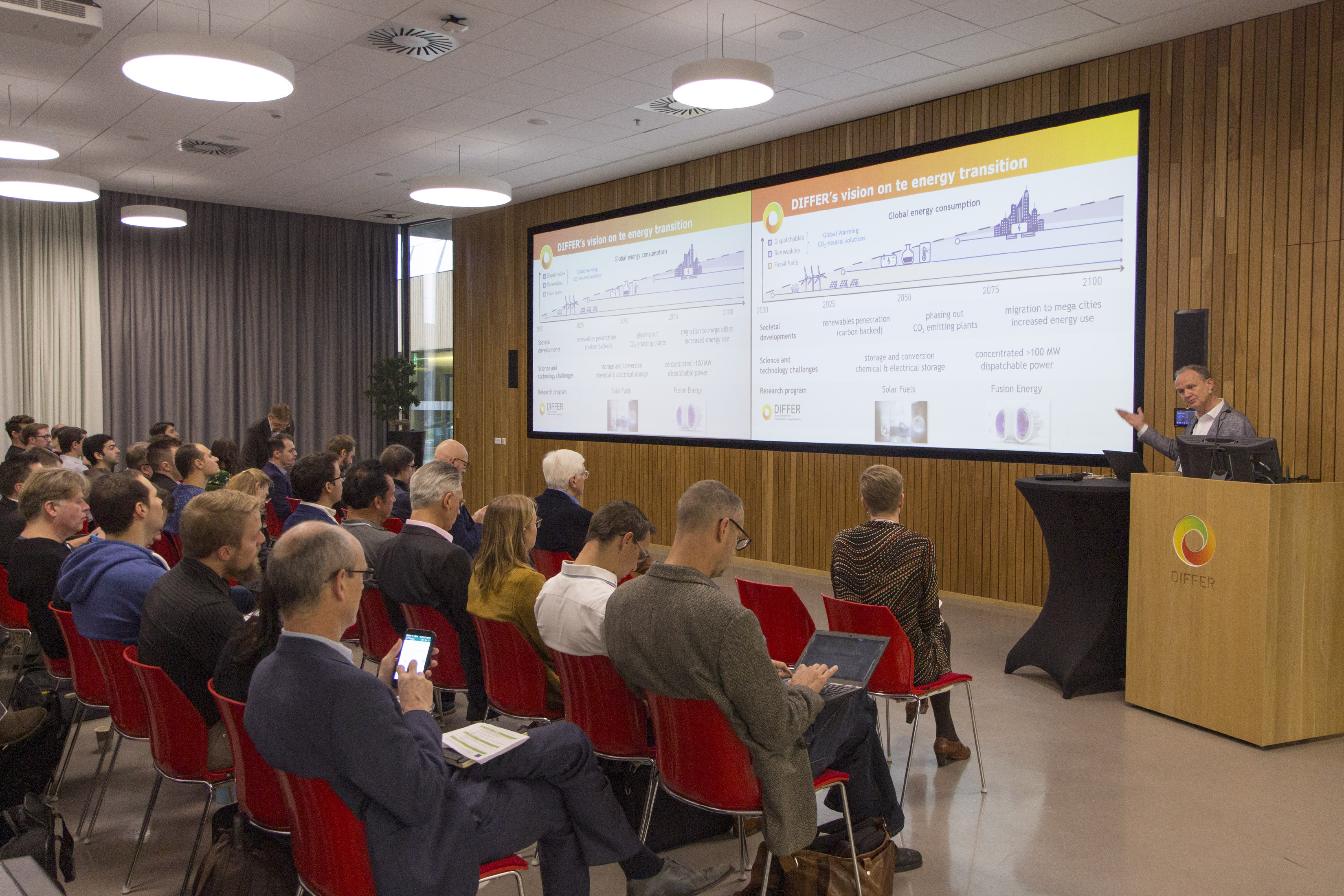Aviation is one of the least tractable of industries to decarbonize. The European research project KEROGREEN offers a pathway to synthesizing sustainable kerosene from air and water. Researchers and industry gathered on the 15 November 2019 at DIFFER to share their work and views.
 Aviation fuel from air: the goal of the KEROGREEN project is the development and testing of an innovative conversion route for the production of sustainable aircraft grade kerosene from water and air, powered by renewable electricity. The KEROGREEN conversion route is based on plasma driven dissociation of air captured CO2, solid oxide membrane oxygen separation and Fischer-Tropsch (F-T) kerosene synthesis. The project aims at building a container sized unit producing one liter per hour of kerosene.
Aviation fuel from air: the goal of the KEROGREEN project is the development and testing of an innovative conversion route for the production of sustainable aircraft grade kerosene from water and air, powered by renewable electricity. The KEROGREEN conversion route is based on plasma driven dissociation of air captured CO2, solid oxide membrane oxygen separation and Fischer-Tropsch (F-T) kerosene synthesis. The project aims at building a container sized unit producing one liter per hour of kerosene.
Prototype
“The workshop at DIFFER was on the first steps of the processing chain, the production of synthetic gas - syngas - from CO2, including the extraction of CO2 from air”, KEROGREEN coordinator Adelbert Goede (DIFFER) explains. A future workshop on the system integration with synthesis of fuel from syngas is planned for 2021, in Karlsruhe. “In the end, all our research needs to be translated into working systems for our prototype”, Goede adds. Green kerosene for aviation offers the important advantage that already existing infrastructure for storage, transport and distribution can be used without change.
DIFFER director Van de Sanden points out the importance of the KEROGREEN project: "DIFFER researches new sustainable energy technology for the future. Many of our research projects are on converting CO2 into fuels and chemicals. The KEROGREEN project is one of them. It's a research project to be proud on: we are talking about the future of green flying here."
Workshop
The workshop consisted of lectures and poster presentations. There was a panel discussion on the way forward. Speakers from academia and industry included: DIFFER director Richard van de Sanden, Michalis Tsampas (DIFFER), Annemie Bogaerts (University of Antwerp), Hennie Bouwmeester (University Twente), Ursel Fantz (MPI for Plasma Physics), Stephan Renninger (Stuttgart University), Frederik Scheiff (BASF SE) and Roland Dittmeyer (Karlsruhe Institute of Technology).
The KEROGREEN project has received funding from the European Union‘s Horizon 2020 Research and Innovation Programme.
More information
KEROGREEN website
KEROGREEN workshop
Article (in Dutch) on synthetic kerosene: Technisch Weekblad



Go to the News page.